Hey YA Readers! Let’s talk vignette-style books.
Sponsored by Confessions of a Teenage Leper by Ashley Little.
 Texas cheerleader Abby Furlogh is on top of the world until a diagnosis of Hansen’s Disease-also known as leprosy- throws a wrench into all of her plans. As Abby learns more about her disease she questions what she wants- and most of all who, she wants to be. With her history as an A+ Mean Girl, Abby is hard to like at first, but this contemporary YA novel pulls no punches as it examines not only the hierarchy of high school, but the reality of living with disease. Confessions of a Teenage Leper by Ashley Little is available now.
Texas cheerleader Abby Furlogh is on top of the world until a diagnosis of Hansen’s Disease-also known as leprosy- throws a wrench into all of her plans. As Abby learns more about her disease she questions what she wants- and most of all who, she wants to be. With her history as an A+ Mean Girl, Abby is hard to like at first, but this contemporary YA novel pulls no punches as it examines not only the hierarchy of high school, but the reality of living with disease. Confessions of a Teenage Leper by Ashley Little is available now.
I recently finished a new YA book and one of the things that struck me besides its theme was the way the story was told. I’m a big fan of alternate formats — I love epistolary novels, novels told in verse, novels told through diary entries, and books which offer up interesting visual elements alongside the text.
This particular book, included below*, was told in a series of vignettes. Vignette style, for those unfamiliar with the term, means that the book is told in short snapshots and precise moments. It sets a scene or impression in a very specific manner, then moves on to the next. The style is kind of like looking at a bunch of photographs that are all linked and logically fit together. The photography metaphor is, of course, because vignette writing is like a snapshot of a moment or a character.
It’s not always the case, but I do find that books told in this style move quickly. It’s likely you’ll start one and not even realize you’re nearly finished before you take a moment to look up.
Find below 5 YA novels told in vignettes. Descriptions are from Goodreads, though I have read all but two of these so far and can recommend them all highly.
YA Novels Told In Vignettes
On April 14, 2014, Boko Haram kidnapped 276 girls. Some managed to escape. Many are still missing. A new pair of shoes, a university degree, a husband—these are the things that a girl dreams of in a Nigerian village. A girl who works hard in school and to help her family. A girl with a future as bright as live coals in the dark. And with a government scholarship right around the corner, everyone—her mother, her five brothers, her best friend, her teachers—can see that these dreams aren’t too far out of reach. Even if the voices on Papa’s radio tell more fearful news than tales to tell by moonlight.
But the girl’s dreams turn to nightmares when her village is attacked by Boko Haram, a terrorist group, in the middle of the night. Kidnapped, she is taken with other girls and women into the forest where she is forced to follow her captors’ radical beliefs and watch as her best friend slowly accepts everything she’s been told. Still, the girl defends her existence. As impossible as escape may seem, her life—her future—is hers to fight for.
Liara Tamani’s debut novel deftly and beautifully explores the universal struggles of growing up, battling family expectations, discovering a sense of self, and finding a unique voice and purpose. Taja Brown lives with her parents and older brother and younger sister, in Houston, Texas. Taja has always known what the expectations of her conservative and tightly-knit African American family are—do well in school, go to church every Sunday, no intimacy before marriage. But Taja is trying to keep up with friends as they get their first kisses, first boyfriends, first everythings. And she’s tired of cheering for her athletic younger sister and an older brother who has more freedom just because he’s a boy. Taja dreams of going to college and forging her own relationship with the world and with God, but when she falls in love for the first time, those dreams are suddenly in danger of evaporating.
Have you ever had the feeling that you’ve lived another life? Been somewhere that has felt totally familiar, even though you’ve never been there before, or felt that you know someone well, even though you are meeting them for the first time? It happens.
In a novel comprising seven parts, each influenced by a moon – the flower moon, the harvest moon, the hunter’s moon, the blood moon – this is the story of Eric and Merle whose souls have been searching for each other since their untimely parting.
At age four, Young Ju moves with her parents from Korea to Southern California. She has always imagined America would be like heaven: easy, blissful, and full of riches. But when her family arrives, she finds it to be the opposite. With a stubborn language barrier and cultural dissimilarities, not only is it impossible to make friends, but even her family’s internal bonds are wavering. Her parents’ finances are strained, yet her father’s stomach is full of booze.
As Young Ju’s once solid and reliable family starts tearing apart, her younger brother begins to gain more freedom and respect simply because of his gender. Young Ju begins to lose all hope in the dream she once held—the heaven she longs for. Even as she begins to finally fit in, a cataclysmic family event will change her idea of heaven forever. But it also helps her to recognize the strength she holds, and envision the future she desires, and deserves.
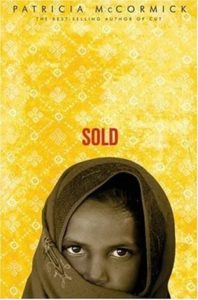 Sold by Patricia McCormick
Sold by Patricia McCormick
Lakshmi is a thirteen-year-old girl who lives with her family in a small hut in the mountains of Nepal. Her family is desperately poor, but her life is full of simple pleasures, like raising her black-and-white speckled goat, and having her mother brush her hair by the light of an oil lamp. But when the harsh Himalayan monsoons wash away all that remains of the family’s crops, Lakshmi’s stepfather says she must leave home and take a job to support her family.
He introduces her to a glamorous stranger who tells her she will find her a job as a maid working for a wealthy woman in the city. Glad to be able to help, Lakshmi undertakes the long journey to India and arrives at “Happiness House” full of hope. But she soon learns the unthinkable truth: she has been sold into prostitution.
An old woman named Mumtaz rules the brothel with cruelty and cunning. She tells Lakshmi that she is trapped there until she can pay off her family’s debt – then cheats Lakshmi of her meager earnings so that she can never leave.
Lakshmi’s life becomes a nightmare from which she cannot escape. Still, she lives by her mother’s words – “Simply to endure is to triumph” – and gradually, she forms friendships with the other girls that enable her to survive in this terrifying new world. Then the day comes when she must make a decision – will she risk everything for a chance to reclaim her life?
____________________
Thanks for hanging out, and we’ll see you later this week!
— Kelly Jensen, @veronikellymars on Twitter and Instagram
Psst: My book (Don’t) Call Me Crazy: 33 Voices Start The Conversation About Mental Health hits shelves next week. If you love anthologies with essays, YA nonfiction, amazing YA writers, or books about mental health, consider preordering a copy? I’m going to talk about it + mental health and reading in next week’s newsletter, too.
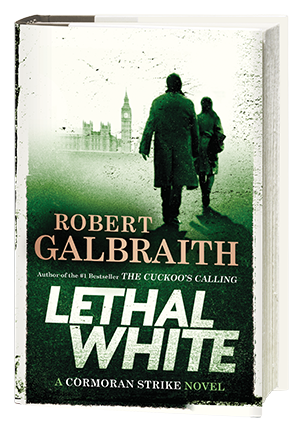 Sponsored by Mulholland Books
Sponsored by Mulholland Books A Blade So Black by L.L. McKinney
A Blade So Black by L.L. McKinney You Don’t Know Everything, Jilly P! by Alex Gino
You Don’t Know Everything, Jilly P! by Alex Gino The Shape of the Ruins: A Novel by Juan Gabriel Vásquez
The Shape of the Ruins: A Novel by Juan Gabriel Vásquez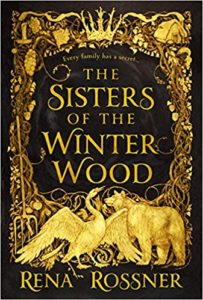 The Sisters of the Winter Wood by Rena Rossner
The Sisters of the Winter Wood by Rena Rossner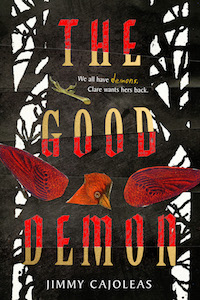


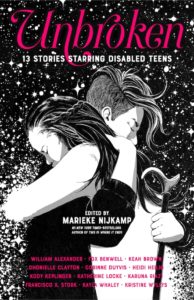
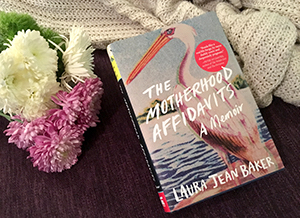
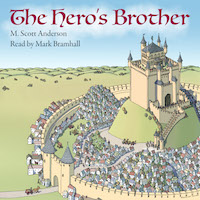
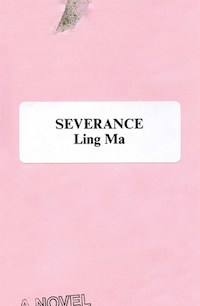

 Texas cheerleader Abby Furlogh is on top of the world until a diagnosis of Hansen’s Disease-also known as leprosy- throws a wrench into all of her plans. As Abby learns more about her disease she questions what she wants- and most of all who, she wants to be. With her history as an A+ Mean Girl, Abby is hard to like at first, but this contemporary YA novel pulls no punches as it examines not only the hierarchy of high school, but the reality of living with disease. Confessions of a Teenage Leper by Ashley Little is available now.
Texas cheerleader Abby Furlogh is on top of the world until a diagnosis of Hansen’s Disease-also known as leprosy- throws a wrench into all of her plans. As Abby learns more about her disease she questions what she wants- and most of all who, she wants to be. With her history as an A+ Mean Girl, Abby is hard to like at first, but this contemporary YA novel pulls no punches as it examines not only the hierarchy of high school, but the reality of living with disease. Confessions of a Teenage Leper by Ashley Little is available now.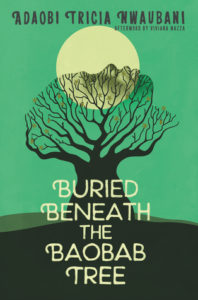




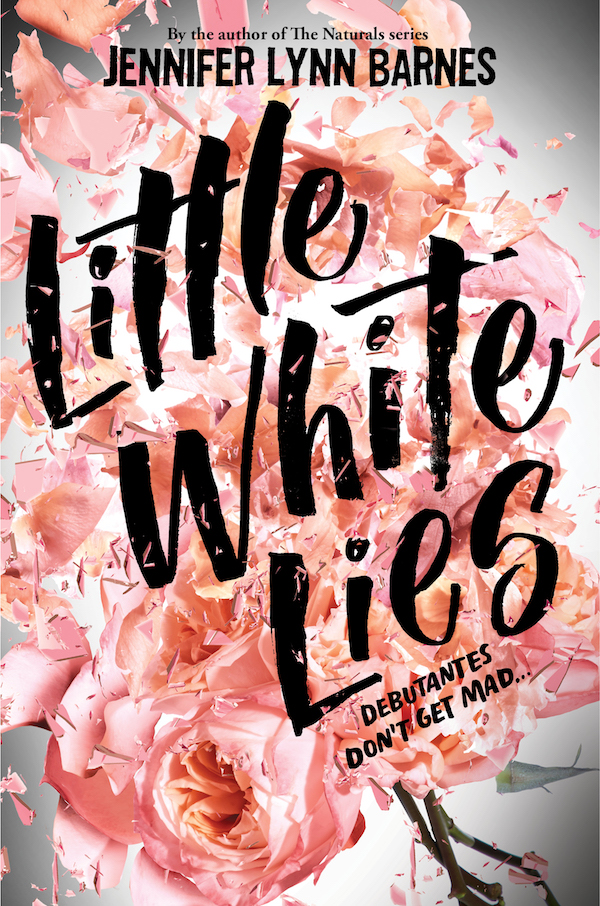


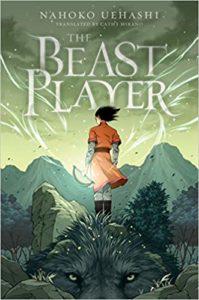 The Beast Player
The Beast Player Southern Lady Code: Essays
Southern Lady Code: Essays Black Leopard, Red Wolf
Black Leopard, Red Wolf